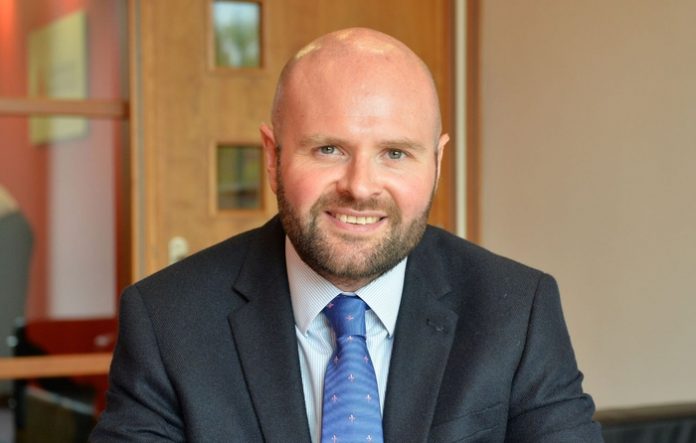Ben Pretty, a partner at leading global real estate services firm Cushman & Wakefield, has taken up his place on the Institute of Economic Development (IED) Board of Directors after being formally co-opted in December 2019.
Ben, who is based in Cushman & Wakefield’s Leeds regional office, has over 15 years’ consultancy experience, largely advising public and private sector organisations on property development, infrastructure, regeneration and economic development projects. He is a Chartered Surveyor and works mainly in the field of regeneration and economic development.
His appointment as a Partner last year means that Ben leads much of Cushman & Wakefield’s economic development and growth-based work nationally. Through this role, Ben advises Local Enterprise Partnerships, Combined Authorities and Local Authorities and developers on the development and appraisal of business cases to secure public sector investment in infrastructure and property schemes with a focus on commercial, residential and mixed-use schemes. He is also involved in making the case for investment in a number of large-scale infrastructure schemes and is currently involved in the regeneration of town centres through to the delivery of major residential schemes.
Speaking about his appointment to the IED Board, Ben said that he was relishing the challenge. “I have been involved in economic development since 2007 and an awful lot has changed during this time,” he explained. “I have always wanted the opportunity to have an influence on change in our sector, rather than sitting back and responding to changes, so when the chance to join the Board came up it was something I was keen to pursue. I have been a member of the IED for 10 years – and I have seen the Institute become more and more influential over the years – so I am looking forward to supporting the next phase of its journey.”
Like many economic development and regeneration professionals, Ben initially joined the IED to gain professional accreditation but has noticed a step-change in its overall value to members. “The IED is definitely more recognised as a body and a collective group of core individuals now, with more influence and say, and that has benefitted members through the representation of our interests,” he said. “I am excited about supporting further proactive engagement with members, whether that is through thought leadership, CPD or something entirely different, and ultimately enhance the brand, profile and reach of the IED as the leading professional body in the field of economic development. I see that engagement expanding to public and private sector professionals working in property, transport and skills in the broadest sense, with economic growth at the heart of it.”
Ben said that the growth of private sector organisations in the IED’s membership meant that further representation of those businesses was required. “Historically the IED has been a public sector membership body, with few private sector members on the Board, but that has changed,” he explained. “The USP that I bring is a voice in the private sector world, especially in terms of bringing together the private sector property world with the traditionally more public sector-led agenda of economic development. Around 70% of my work is in the public sector, so I also understand that side of our membership, and I will bring my private sector commercial edge and experience to the Board.”
Whilst recognising the challenges facing the sector, Ben highlighted the need for further collaboration between public and private sector to address these. “Yes there is currently economic and political uncertainty, but there is a significant opportunity for the public sector to step up and work more with the private sector to deliver mutual goals and objectives,” he said. “I am keen to drive things forward and leverage public-private working and partnerships.”
IED Chair Bev Hurley said: “The Board are delighted to welcome Ben and we are sure that his consultancy experience across the public and private sector, and expertise in property development, infrastructure, regeneration and economic development, will be of great value to the Institute and its members.”





















